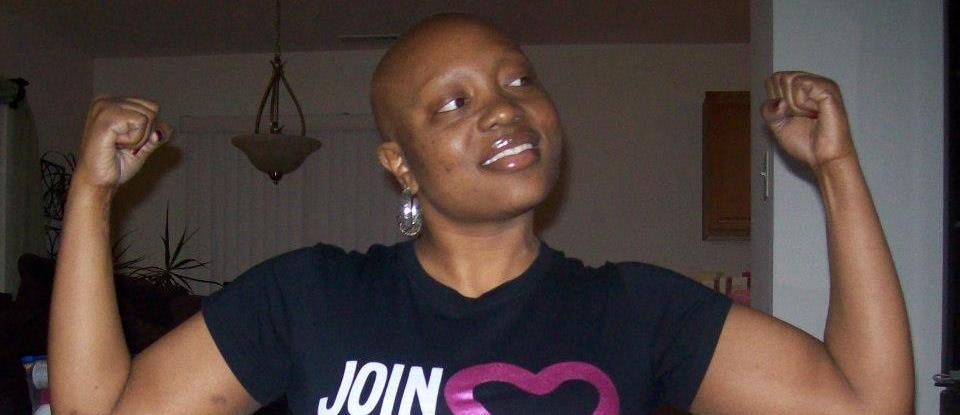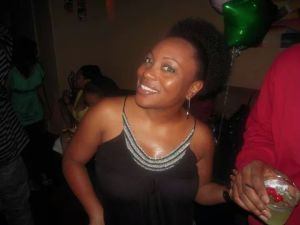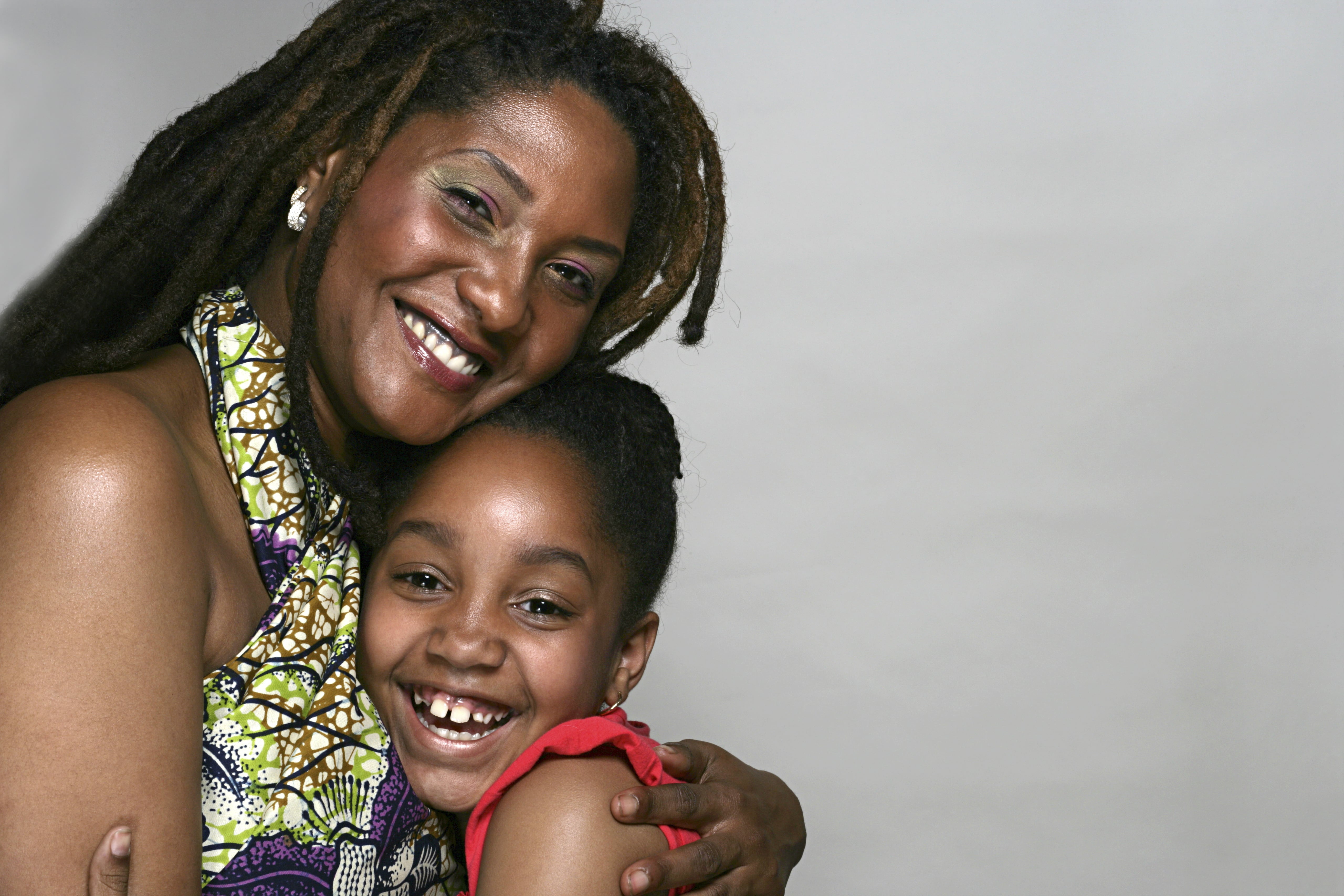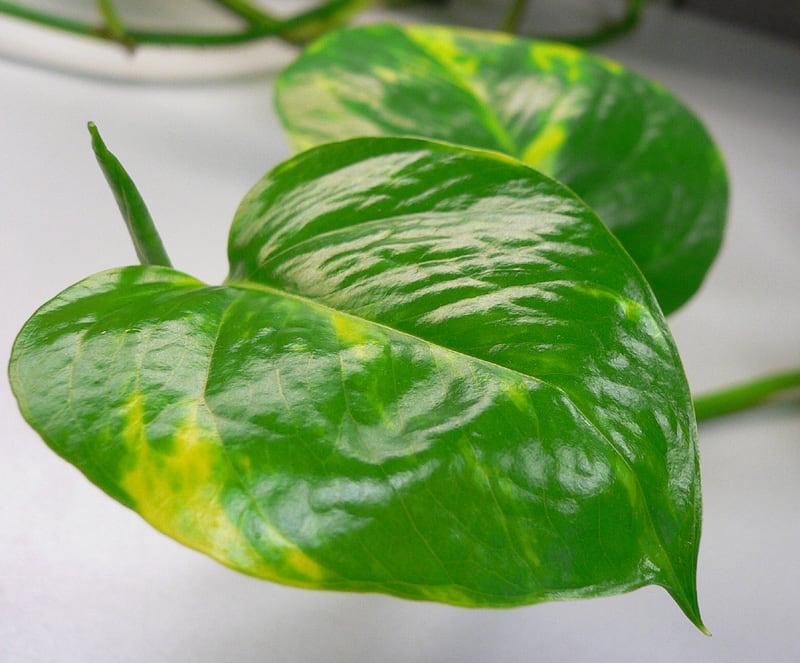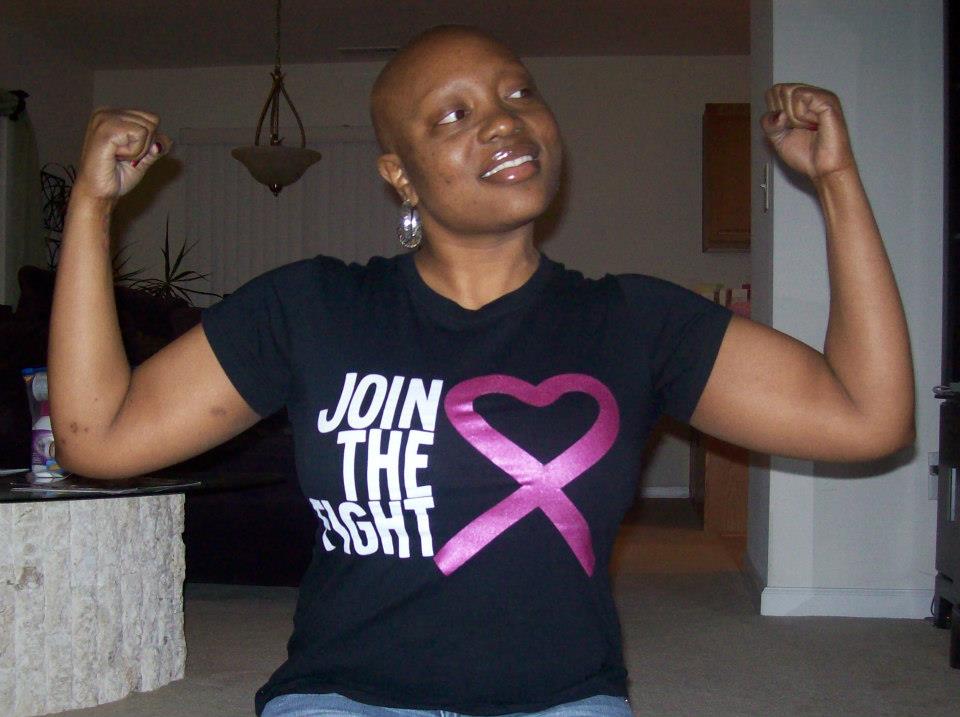
“I don’t think of it as a negative experience, because I believe that everything happens for a reason,” says three-year breast cancer survivor Tiffany Sanders. “I believe this was part of my journey, before my story was even written.”
Breast cancer helped Tiffany Sanders speak up more and put herself first.
“It’s taught me how truly strong I am,” Sanders says. “It’s also taught me to communicate more about what I need.”
Sanders was diagnosed with cancer three years ago at age 34 after feeling a lump in her breast. Her doctor initially dismissed her worries because she was young with dense (firm with lots of fibrous tissue) breasts. She had also had a mammogram at 30 that showed no evidence of cancer. Awareness of family history convinced her to start getting mammograms a decade earlier than the American Cancer Society’s screening recommendation.
Her doctor’s doubts aside, Sanders insisted on another mammogram. She had lost two aunts to breast cancer — one on her father’s side and another more recently on her mother’s side. The breast cancer ribbon tattooed on her wrist in their memory was a constant reminder that the disease could strike her family again.
“This kind of thing will make you change who you are,” Sanders says. “Pre-cancer, I was running around and doing everything for everybody. I was always that person that you could count on.”
Flying solo as a single woman, she did everything for herself too. In the process, her diet and her nerves suffered. “I was working hard for my job, not eating right and stressed out.”
“I think as African Americans, we don’t communicate as much as we need to,” Sanders says. “We are all ‘woman hear us roar.’ I have learned that I need to ask for help when I need it instead of trying to do everything by myself.”
With her family living two hours away in Ashville, N.C., she even drove herself around Charlotte, N.C., to her 16 chemotherapy treatments, 36 radiation treatments and a slew of other appointments. She even moved a refrigerator into her bedroom for those times when she was too weak to make it to the kitchen.
Sanders felt triumphant once her treatment ended and ready to get on with life.
She had survived the drugs, nausea, constipation, hot flashes and a weeklong infection that landed her in the hospital. Once worried about losing her hair, she pulled off the lace-front wig, peeled off the braids she was unable to save and proudly wore her baldness. She dealt with her blackened nails, covering the missing ones on her big toes with acrylic so that she could wear sandals. And she still had both breasts; a lumpectomy successfully removed two tumors. She was ready to head to Las Vegas and live it up.
Then she hit a wall.
“I started to break down emotionally,” Sanders recalls. As a mental health therapist, she recognized the signs. “I went through the stages of grief. You’re in denial and shock. Then you go through anger. Then you accept it.”
“A year after all of my treatment was over, I just got angry and I was calling everybody and fussing at them,” she says, “and then I started asking for help.”
“Having to go through this by myself helped me realize that I do need people.”
Now she shares her experiences with other women dealing with breast cancer. “I try to encourage them and say, ‘Look at me. I made it through; you can, too!’”
“Everybody’s not willing to accept that,” she acknowledges. “Everybody’s journey is different.”
Sanders’ journey started on Sept. 6, 2011, with shock and tears after learning that she had triple-negative breast cancer, which strikes black women harder and more often. Their tumor cells are “negative” for three targets of widely used hormone therapy and drugs: estrogen receptors, progesterone receptors and the HER2 protein.
After the shock wore off, she went into survival mode and tried to be as positive as possible. “I was not expecting to die; I was expecting to live.” She enrolled in two clinical trials to increase her odds and to help find a cure for triple-negative breast cancer.
“Halfway through my treatment, I just got tired, and I just started crying and it was a terrible feeling,” she says. “They had to put me on anti-depressants.”
In mid-December, she took a leave from her job at a nonprofit agency, working as a mental health therapist for children with emotional and behavioral disabilities. She completed her treatments by the end of February and had the lumpectomy in March with her family there for TLC. “My mother and sister tried to come every weekend,” Sanders said.
“I took my time going back to work,” says Sanders, who took off seven months, returning in August 2012 on a part-time basis. In January 2013, she came back full time.
Along the way, she joined a survivors’ group for women under 40 at the Pink House in Charlotte, a program of the Carolina Breast Friends. “We talk about living life and enjoying life,” she explains. “When we get together, it’s a positive energy. I really enjoy going to that group.”
Sanders learned about runs and walks and financial resources available through the Susan G. Komen Foundation and the Go Jen Go Foundation, which paid her $1,700 share for an MRI, a highly effective breast cancer monitoring tool that is still considered experimental and therefore not covered by many insurance companies. She also received therapy through the Buddy Kemp Cancer Support Center at Novant Health.
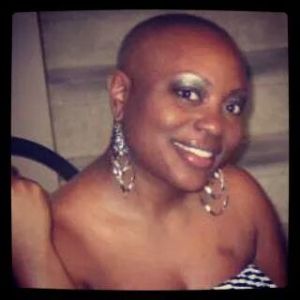
“Even losing my hair, I laughed a little bit about that,” Tiffany Sanders says. At first, she didn’t.
“Cancer is traumatic. Losing your hair is traumatic. Thinking about losing your eggs is traumatic. Thinking about losing your breasts is traumatic. It’s almost like you get PTSD [Post-Traumatic Stress Disorder]. Because I am aware of the symptoms, it did help me.”
“My bones still ache [from the chemotherapy] from time to time,” she says. “I still get tired sometimes, but not as much as I used to.”
“I don’t think of it as a negative experience, because I believe that everything happens for a reason. I believe this was part of my journey, before my story was even written.”
For Sanders, laughter really is the best medicine. “Even losing my hair, I laughed a little bit about that,” she says. “I try to keep a positive attitude and maintain a positive spirit. I feel as though if you allow yourself to get too ‘Woe is me,’ that can make your journey go in a different direction.”
The 37-year-old used to dread her menstrual cycle. “I was excited to get my period after I finished chemotherapy,” she says. “I called my mom and said, ‘Guess what?’ I said, ‘Maybe I can get pregnant still; maybe I can have kids!’”
Now that Sanders is in remission, she visits her doctor and has an MRI every six months. “If it comes back, I want to catch it early,” she says with determination. “I do worry a little bit about it coming back, because they say you need to get past the first five-year mark. If it’s in my story that it’s supposed to come back, I’m going to fight even harder than I did the first time.”
“I’m told I’m a ‘shero,’ but I feel that I just did what I had to do to survive,” Sanders explains. “I did what anybody in my position would have done who still had the desire to live and who still thought they had more to give to the world.”
Yanick Rice Lamb, who teaches journalism at Howard University, is co-founder of FierceforBlackWomen.com.
Tiffany Sanders is participating in a survivors stroll during the HairWalk fashion show at 7 p.m., Oct. 23, 2014, at the Charlotte Convention Center in North Carolina.

